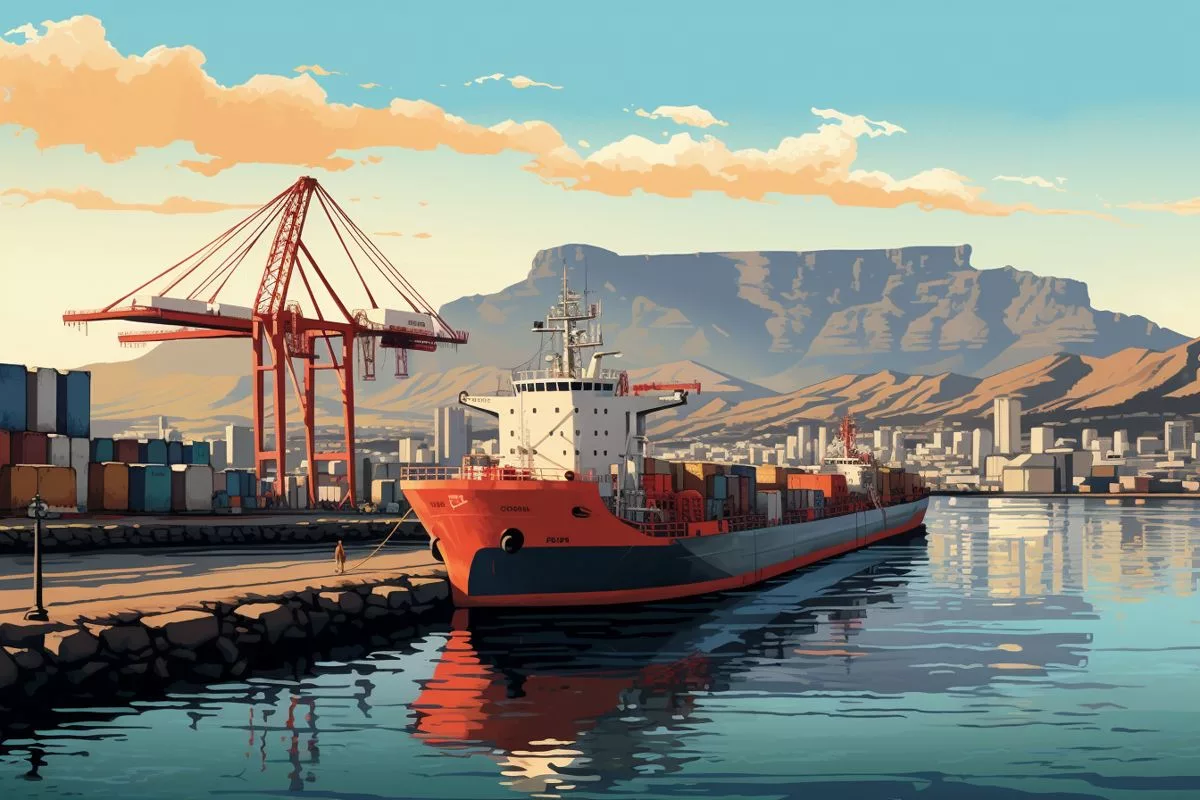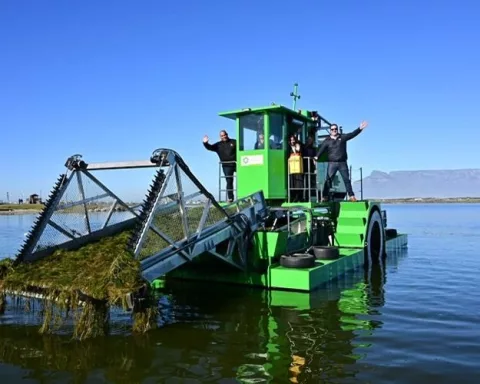Private sector engagement in the Port of Cape Town could generate an extra R6 billion in exports, create roughly 20,000 direct and indirect jobs, and yield more than R1.6 billion in added taxes over five years. The port has been facing operational inefficiencies and delays, which hinder the city’s commerce and economic progress. The Western Cape’s Department of Economic Development and Tourism suggests that private sector involvement could introduce new investments, cutting-edge technologies, and effective management practices, ultimately increasing the port’s competitiveness and strengthening the region’s economy.
What are the benefits of private sector engagement in the Port of Cape Town?
Private sector engagement in the Port of Cape Town could generate an extra R6 billion in exports, create roughly 20,000 direct and indirect jobs, and yield more than R1.6 billion in added taxes over five years. It could introduce new investments, cutting-edge technologies, and effective management practices, ultimately increasing the port’s competitiveness and strengthening the region’s economy.
In recent times, the Port of Cape Town has grappled with considerable obstacles, leading to operational inefficiencies and delays that impede the city’s commerce and economic progress. As the South African government reevaluates its approach to privatization, incorporating private sector involvement in the port could potentially generate billions in exports, offer thousands of job opportunities, and yield substantial tax revenue. This article examines the current predicaments faced by the port, the potential benefits of engaging the private sector, and the city’s demand for immediate action.
Struggles at the Port of Cape Town
The Port of Cape Town, a crucial trading center at the southernmost point of Africa, has been plagued by widely-reported inefficiencies. For example, local boat manufacturers have revealed that due to congestion in the port, they must maintain an additional three to four months’ worth of inventory to satisfy consumer needs. Exporters from various sectors have voiced similar concerns.
Such hindrances create a serious risk to the city’s economy since businesses may opt to relocate to other ports with fewer problems. Alderman Vos, a local representative, emphasizes the significance of efficient port operations for a nation heavily dependent on trade and exports. He also recognizes the efforts made by the Port of Cape Town team to surmount these challenges.
Benefits of Private Sector Engagement
Research conducted by the Western Cape’s Department of Economic Development and Tourism suggests that private sector engagement in the Port of Cape Town could result in an extra R6 billion in exports, roughly 20,000 direct and indirect jobs, and more than R1.6 billion in added taxes over five years. Such involvement could introduce new investments, cutting-edge technologies, and effective management practices, ultimately increasing the port’s competitiveness and strengthening the region’s economy.
The City’s Call for Immediate Action and Openness
The Cape Town city administration has urged the national government to hasten the release of the Freight Logistics Roadmap, which will direct private sector involvement in the port. Alderman Vos has already contacted Public Enterprise Minister Pravin Gordhan concerning the city’s proposals to move towards privatizing certain aspects of the port. Following Finance Minister Enoch Godongwana’s recent statement, Alderman Vos intends to engage the Presidency on the issue.
Transparency is vital in this endeavor, as the city administration emphasizes the need to closely examine the Freight Logistics Roadmap. Moreover, the Finance Minister’s suggestion that potential state bailouts for Transnet—a state-owned port operator—will be tied to adherence with this document adds to the urgency of its release. Alderman Vos stresses that wasteful state bailouts to maintain the status quo must be averted, and private intervention in the Port of Cape Town should be sought for maximum economic advantage.
A Cultural and Artistic Angle
The Port of Cape Town has long symbolized the city’s rich maritime heritage and its position as a nexus for global trade. From the early days of European exploration to the dynamic trade routes of today, the port has functioned as a gateway and hub for cultural exchange. Its revitalization through private sector engagement could not only regenerate its economic power but also rekindle its historical and artistic importance.
Along with enhancing trade and economic growth, the rejuvenation of the port might also spark a new wave of artistic and cultural movements in the city. The combination of contemporary technologies and traditional maritime practices could lay the groundwork for inventive creations, while the influx of new investments and visitors may foster a more lively atmosphere in the area.
In summary, the Port of Cape Town confronts significant challenges that jeopardize the city’s economic growth and its historical and artistic heritage. Private sector involvement offers an opportunity to resolve these issues and unleash the port’s full potential. With the city government advocating for prompt action and transparency, the revitalization of the Port of Cape Town may be within reach — ushering in a period of economic prosperity and a thriving artistic spirit.
1. What are the benefits of private sector engagement in the Port of Cape Town?
Private sector engagement in the Port of Cape Town could generate an extra R6 billion in exports, create roughly 20,000 direct and indirect jobs, and yield more than R1.6 billion in added taxes over five years. It could introduce new investments, cutting-edge technologies, and effective management practices, ultimately increasing the port’s competitiveness and strengthening the region’s economy.
2. What struggles has the Port of Cape Town faced?
The Port of Cape Town has faced operational inefficiencies and delays, which hinder the city’s commerce and economic progress. Congestion and inventory issues have also been reported by local boat manufacturers and exporters.
3. What are the potential benefits of private sector involvement in the port?
Research suggests that private sector engagement in the Port of Cape Town could result in an extra R6 billion in exports, roughly 20,000 direct and indirect jobs, and more than R1.6 billion in added taxes over five years. Such involvement could introduce new investments, cutting-edge technologies, and effective management practices, ultimately increasing the port’s competitiveness and strengthening the region’s economy.
4. What is the Freight Logistics Roadmap?
The Freight Logistics Roadmap is a document that will direct private sector involvement in the port. The Cape Town city administration has urged the national government to hasten its release.
5. What is the city’s call for action?
The Cape Town city administration has urged the national government to hasten the release of the Freight Logistics Roadmap and to move towards privatizing certain aspects of the port. Alderman Vos intends to engage the Presidency on the issue.
6. What is the importance of transparency in this endeavor?
Transparency is vital in this endeavor, as the city administration emphasizes the need to closely examine the Freight Logistics Roadmap. Potential state bailouts for Transnet will be tied to adherence with this document, adding to the urgency of its release.
7. What is the potential for cultural and artistic growth at the port?
The revitalization of the Port of Cape Town through private sector engagement may also spark a new wave of artistic and cultural movements in the city. The combination of contemporary technologies and traditional maritime practices could lay the groundwork for inventive creations, while the influx of new investments and visitors may foster a more lively atmosphere in the area.
8. What is the potential for economic prosperity?
With private sector involvement, the revitalization of the Port of Cape Town could unleash its full potential, leading to economic growth and job creation, ultimately strengthening the region’s economy.












